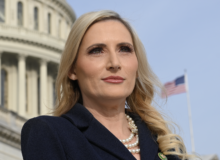I don’t understand what the confusion is on Tax Policy! It seems pretty cut and dried to me. If you cut taxes the economy will grow, if you don’t the economy suffers. Seems simple to me, so why is it that people have a hard time with this? The only reason, that I see, is that they haven’t taken the time to really analyze it. They don’t want to take the time to figure it out for themselves, so they trust the people in their political party to tell them what to think. Here therefor is the problem we have in this country, people can’t think for themselves anymore.
So let me try to help out those who are having a problem with this concept.
From the Heritage Foundation on Historic Tax Cuts and the Economy:
A good tax policy has a number of interesting side effects. History shows us that tax revenues grow and wealthy taxpayers pay more tax when marginal tax rates are slashed. This means lower income citizens bear a lower share of the tax burden. Conversely, periods of higher tax rates are associated with sub-par economic performance and stagnant tax revenues. In other words, when you try to tax the rich, the rest of us suffer the consequences.
Tax rates in the 1920’s were slashed from over 70 percent to less than 25 percent, resulting in personal income tax revenues to increase substantially. Revenues rose from $719 million in 1921 to $1164 million in 1928, an increase of more than 61 percent.
In the 1930’s Hoover increased tax rates dramatically, and Roosevelt compounded the damage by pushing marginal tax rates to more than 90 percent. Recognizing that this was hindering the economy, President Kennedy made an across-the-board tax rate reduction that reduced the top rate from more than 90 percent down to 70 percent, which helped revenues climb from $94 billion in 1961 to $153 billion in 1968. This was an increase of 62 percent (33 percent after adjusting for inflation).
According to President John F. Kennedy: Our true choice is not between tax reduction, on the one hand, and the avoidance of large Federal deficits on the other. It is increasingly clear that no matter what party is in power, so long as our national security needs keep rising, an economy hampered by restrictive tax rates will never produce enough revenues to balance our budget just as it will never produce enough jobs or enough profits… In short, it is a paradoxical truth that tax rates are too high today and tax revenues are too low and the soundest way to raise the revenues in the long run is to cut the rates now.
Thanks to “bracket creep,” the inflation of the 1970’s pushed millions of taxpayers into higher tax brackets even though their inflation-adjusted incomes were not rising. President Reagan proposed sweeping tax rate reductions during the 1980’s, and total tax revenues climbed by 99.4 percent. Results are even more impressive when looking at what happened to personal income tax revenues. Once the economy received a tax cut in January 1983, income tax revenues climbed dramatically, increasing by more than 54 percent by 1989 (28 percent after adjusting for inflation).
The tax cuts of the 1920’s caused the share of the tax burden paid by the rich to rise dramatically as tax rates were reduced. The share of the tax burden borne by the rich (those making $50,000 and up in those days) climbed from 44.2 percent in 1921 to 78.4 percent in 1928.
The Kennedy tax cuts followed a similar path as the share of the income tax burden borne by the rich increased following the tax cuts. Tax collections climbed by 57 percent between 1963 and 1966 from those making $50,000 or more, and tax collections from those earning below $50,000 rose 11 percent. As a result, the rich saw their portion of the income tax burden climb from 11.6 percent to 15.1 percent.
The Reagan tax cuts saw the share of income taxes paid by the top 10 percent of earners jumped significantly, climbing from 48 percent in 1981 to 57.2 percent in 1988. The top 1 percent saw their share of the income tax bill climb even more dramatically, from 17.6 percent in 1981 to 27.5 percent in 1988.
Lower tax rates, however, will not be the cure-all to our economic problems.
Lowering taxes can definitely spur a better economy, but Government spending has to be cut dramatically as well. Also revising the tax code, and balancing the budget is defiantly needed at this time. So when your elected officials tell you that raising the taxes on the rich will help us all, you can be assured that they ether are lying to you or are ignorant of the truth. They just want to keep Big Government, so they can move us one more step closer to “THE NEW WORLD ORDER”. This will keep them in power and in the money, while we are driven deeper into poverty and dependency.





















Join the conversation!
We have no tolerance for comments containing violence, racism, vulgarity, profanity, all caps, or discourteous behavior. Thank you for partnering with us to maintain a courteous and useful public environment where we can engage in reasonable discourse.